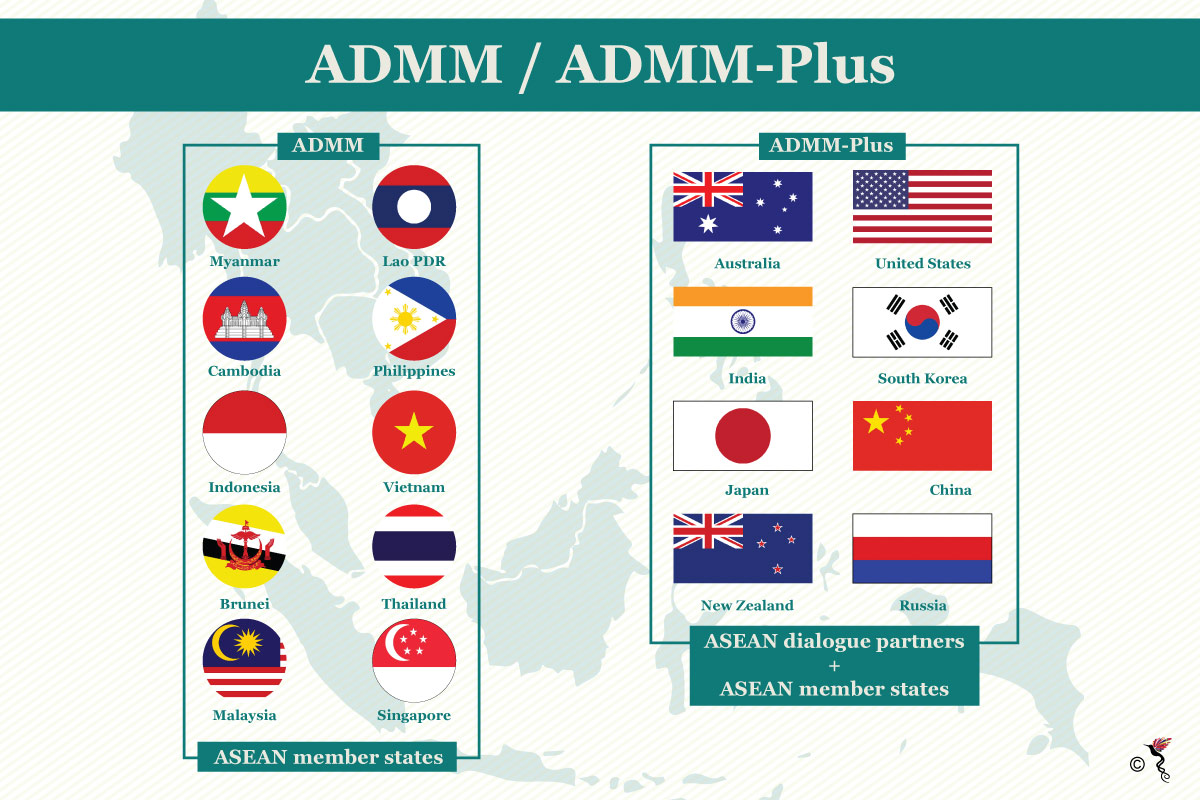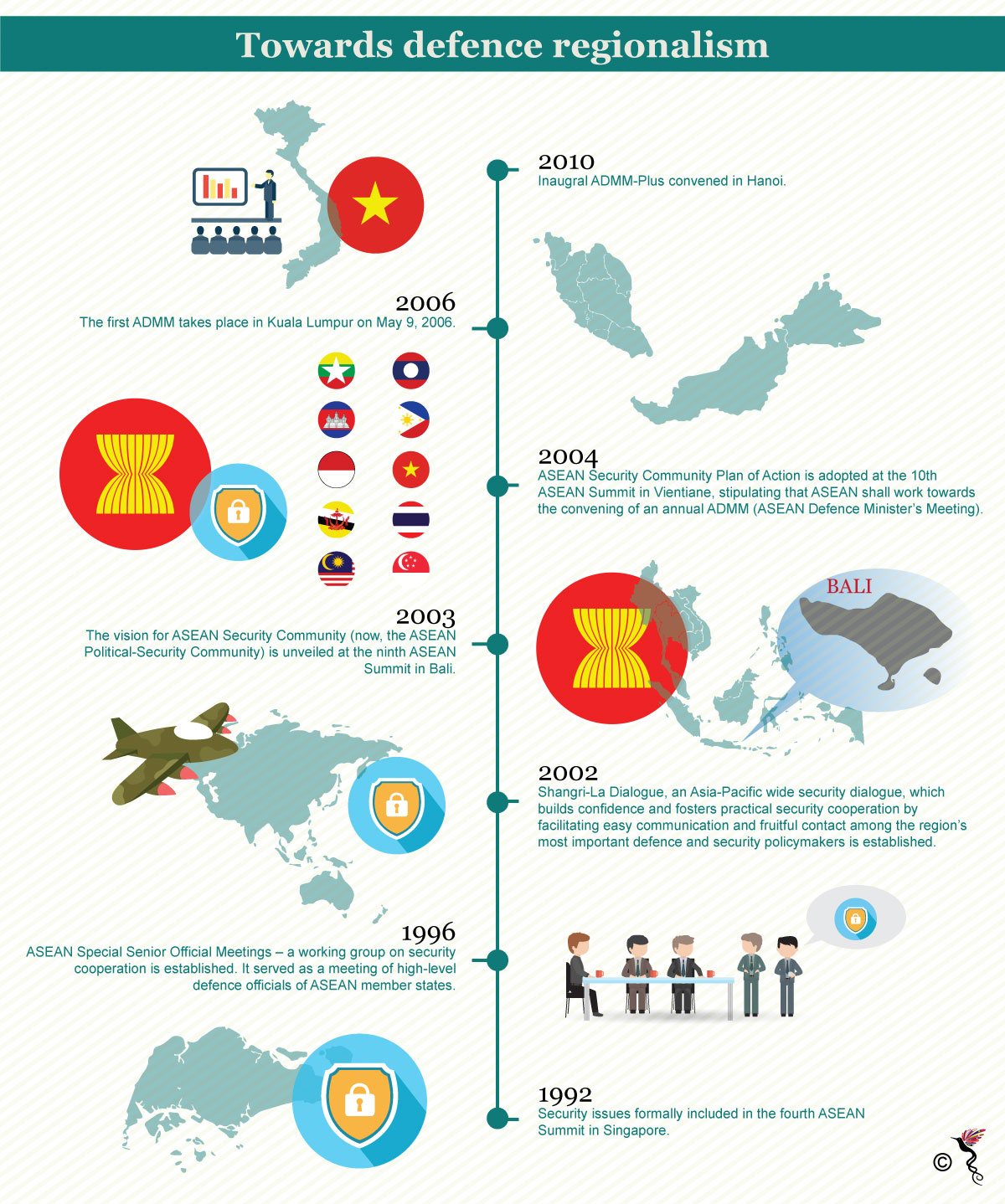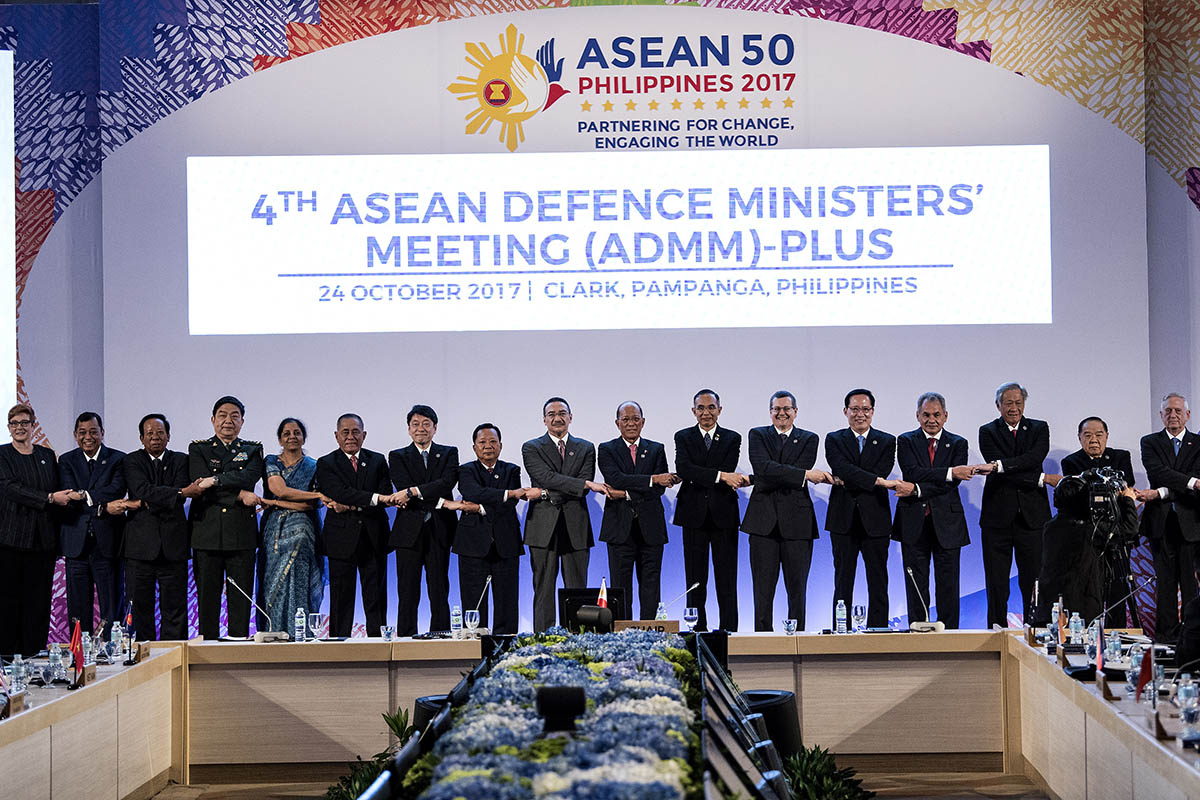On October 23, 2017, ASEAN’s (Association of Southeast Asian Nations) defence ministers gathered in Manilla for the 11th ADMM (ASEAN Defence Minister’s Meeting) which focused on violence, extremism and transnational terrorism.
In a joint statement, the defence ministers of the ten-member association pledged to work together to “identify ways to strengthen counter-terrorism cooperation among ASEAN defence establishments.”
The ADMM is the highest defence consultative and cooperative mechanism in ASEAN. Its primary goals are the promotion of mutual trust, confidence, transparency and greater understanding of defence and security challenges.
The Philippines – as the chair of ASEAN – hosted another high-level security dialogue joined by all eight of ASEAN’s dialogue partners: the ADMM-Plus.
Both the ADMM and ADMM-Plus are integral to regional security in Southeast Asia, especially since the shifting geopolitical tectonics of the region will see the security landscape change along with it. Among others – like the ASEAN Regional Forum (ARF) and East Asia Summit (EAS) – these dialogues are a useful tool in ASEAN’s diplomatic chest as it continues to navigate through tricky diplomatic currents.

ADMM and ADMM-Plus arrangements.
ASEAN as a security community
As ASEAN is noted for its reluctance to be involved in anything which may constitute a breach of its member state’s sovereignty, it comes to no surprise that the idea of defence engagements wasn’t initially a popular one. However, ASEAN found itself having to adapt to non-traditional security challenges which are transnational in nature and the ADMM and ADMM-Plus were convened so that open and constructive dialogue on regional security issues can take place.
The ADMM and ADMM-Plus exist within the context of ASEAN as a security community. The concept of a security community – as introduced by distinguished political scientist, Karl Wolfgang Deutsch – refers to a group of sovereign states which have become integrated. Herein, integration is defined as the achievement of a sense of community which is often accompanied by strong institutions, formal and informal practices which ensure a stable security environment over an extended period of time.
The ADMM and ADMM-Plus are examples of such institutions within the security community framework.
The most important element of a security community is that it does not resolve to the use of force as a problem solving measure. This distinguishes it from military alliances like NATO (North Atlantic Treaty Organisation) which practices collective defence, where an attack on one NATO member state is considered an attack on all NATO members.
Instead, a security community stresses the importance of establishing confidence building measures and trust amongst its member states to tackle sensitive issues like defence. The ADMM and ADMM-Plus are also an act of "defence diplomacy" – an attempt to form fruitful relationships amongst military organisations in the region to ensure peace and stability of the security environment.

Timeline of the formation of the ADMM and ADMM-Plus dialogues.
The workings of the ADMM and ADMM-Plus
According to the "Concept Paper for the Establishment of an ADMM", there are four primary objectives to the dialogue – promotion of regional peace and security, to provide guidance to senior officials on defence security within ASEAN and between ASEAN and its dialogue partners, encouraging mutual trust and confidence and supporting the establishment of the ASEAN Security Community (now the ASEAN Political-Security Community).
Currently, ADMM’s non-traditional security agenda include humanitarian assistance and disaster relief, peacekeeping operations and the defence industry. In order to fulfil its goals, ADMM set a three-year roadmap which outlines its priorities in line with its agenda to bolster practical defence and security engagement. Thus far, the ADMM has conducted various workshops, joint military exercises, produced documents and standard operating procedures and created frameworks for cooperation for emergency response situations and multilateral defence cooperation.
Similarly, the ADMM-Plus focusses on five key fields – humanitarian assistance and disaster relief, medicine, maritime security, peacekeeping and counter-terrorism. To aid its agenda, ADMM endorsed five EWG (Experts Working Group) which can be dissolved once the goal is reached. The most recent EWG was established for humanitarian mine action.
Multilateral potential of the ADMM and ADMM-Plus
ADMM and ADMM-Plus are two of many multilateral avenues that ASEAN uses to advance defence engagements and dialogues between ASEAN member states and its dialogue partners. It is an integral medium to promote regional stability compared to the ARF which is considered by many critics as being highly inflexible.
“With 27 participating countries, the ARF has become an unwieldy forum. Membership of the ADMM-Plus is more restricted, and all members can arguably be said to have a significant role in the security of Southeast Asia and the broader region,” Shahriman Lockman, Senior Analyst of the Institute of Strategic and International Studies Malaysia told The ASEAN Post.
Moreover, with the ever-evolving trends in transnational security issues, ASEAN member states can no longer act alone and must work together with other nation states to handle threats like terrorism and extremism. The ADMM and ADMM-Plus are viable options that not only address these issues as part of its core mandate, but also helps to translate dialogue into palpable action.
“The ADMM-Plus is more readily able put the decisions into practical effect, particularly if it involves military assets. Transnational security issues have always been one of the key issues address in the ADMM and ADMM Plus process. Witness the proposal and decisions made with regard to counter-terrorism in the Philippines,” Lockman noted.
The task at hand for the ADMM and ADMM-Plus is to first surface as the better diplomatic option from the alphabet soup of acronyms associated with ASEAN. It isn’t the most perfect arrangement as there are still instances where government mandarins aren’t too keen to deepen military cooperation which they see as lying very much within the domain of the nation state.
Nevertheless, there are observable improvements to regional security made by these dialogues and it’s crucial that such actions continue to be taken as Southeast Asia stands on the precipice of rather interesting geopolitical developments.
Recommended stories:
